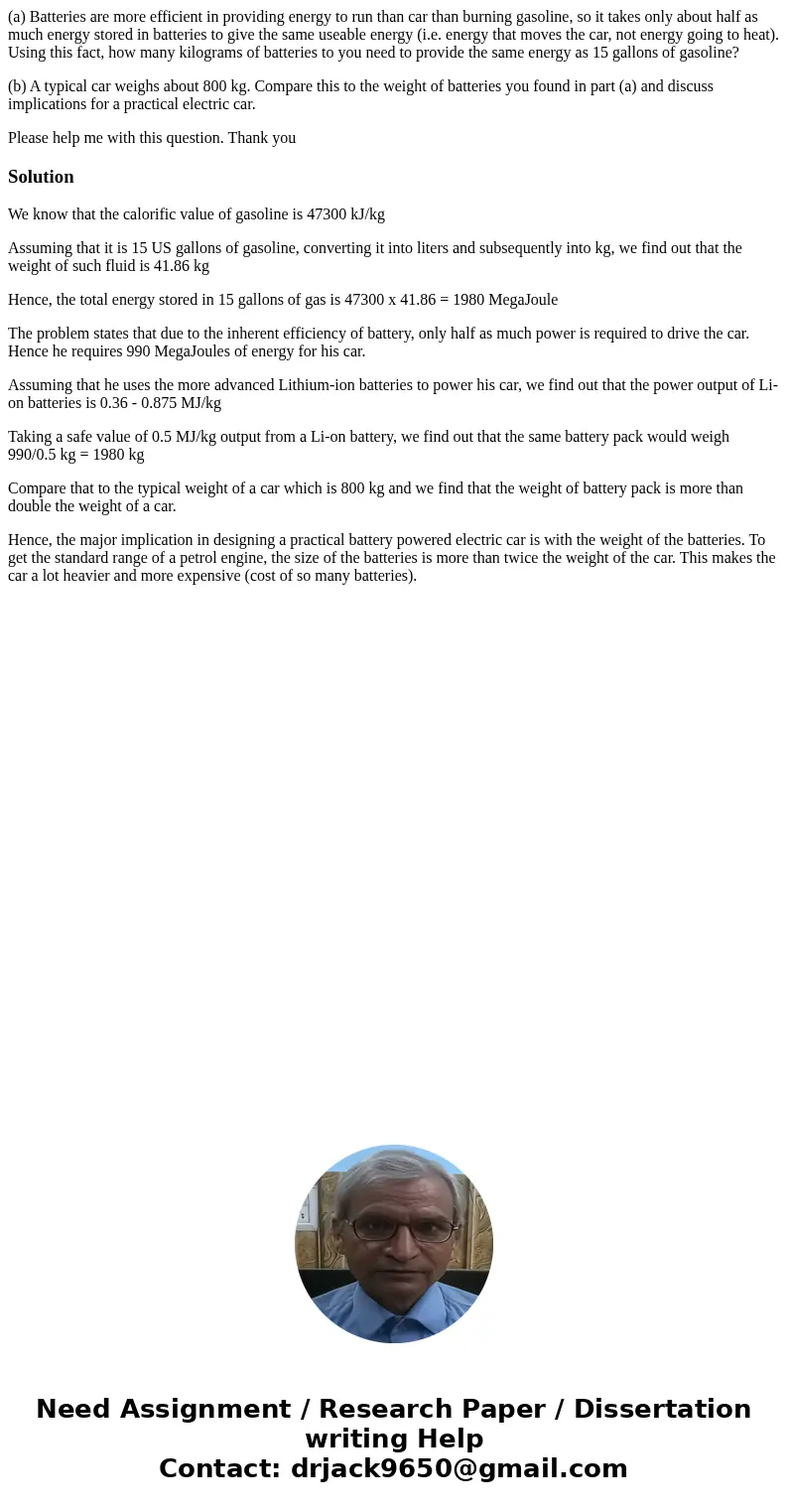a Batteries are more efficient in providing energy to run th
(a) Batteries are more efficient in providing energy to run than car than burning gasoline, so it takes only about half as much energy stored in batteries to give the same useable energy (i.e. energy that moves the car, not energy going to heat). Using this fact, how many kilograms of batteries to you need to provide the same energy as 15 gallons of gasoline?
(b) A typical car weighs about 800 kg. Compare this to the weight of batteries you found in part (a) and discuss implications for a practical electric car.
Please help me with this question. Thank you
Solution
We know that the calorific value of gasoline is 47300 kJ/kg
Assuming that it is 15 US gallons of gasoline, converting it into liters and subsequently into kg, we find out that the weight of such fluid is 41.86 kg
Hence, the total energy stored in 15 gallons of gas is 47300 x 41.86 = 1980 MegaJoule
The problem states that due to the inherent efficiency of battery, only half as much power is required to drive the car. Hence he requires 990 MegaJoules of energy for his car.
Assuming that he uses the more advanced Lithium-ion batteries to power his car, we find out that the power output of Li-on batteries is 0.36 - 0.875 MJ/kg
Taking a safe value of 0.5 MJ/kg output from a Li-on battery, we find out that the same battery pack would weigh 990/0.5 kg = 1980 kg
Compare that to the typical weight of a car which is 800 kg and we find that the weight of battery pack is more than double the weight of a car.
Hence, the major implication in designing a practical battery powered electric car is with the weight of the batteries. To get the standard range of a petrol engine, the size of the batteries is more than twice the weight of the car. This makes the car a lot heavier and more expensive (cost of so many batteries).

 Homework Sourse
Homework Sourse